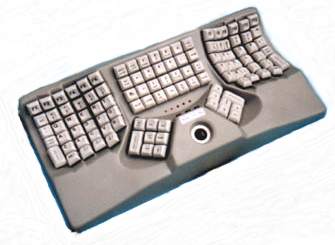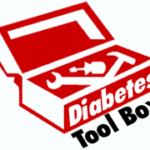 At first, I was skeptical, but research suggests there are benefits.
At first, I was skeptical, but research suggests there are benefits.
Researchers at Skidmore College, at Saratoga Springs, New York, studied the effects of stationary cycling virtual reality tours (“cybercycle”) on executive function and clinical status. Continue reading Exergaming for older adults →
 During infectious disease outbreaks, data collected through health institutions and official reporting structures may not be available for weeks, hindering early epidemiologic assessment.
During infectious disease outbreaks, data collected through health institutions and official reporting structures may not be available for weeks, hindering early epidemiologic assessment.
Researchers in Boston and Quebec studied informal media as an option to provide earlier estimates of epidemic dynamics. Continue reading Using Twitter to spot cholera: it’s what’s trending now →
 Due to emergency care overcrowding, it’s necessary to provide the best care in a timely manor.
Due to emergency care overcrowding, it’s necessary to provide the best care in a timely manor.
Researchers at Sophia Children’s Hospital, in Rotterdam, The Netherlands, attempted to validate a computer-based Netherlands Triage System developed for physical triage at emergency departments and telephone triage at general practitioner cooperatives. Continue reading Need to go to the emergency department? Call ahead. →
 Researchers at the University of Manchester, in the UK, studied the clinical impact of telephone-delivered cognitive behavioral therapy (CBT) and exercise alone vs both for patients with chronic widespread pain. Continue reading Telephone-delivered CBT and exercise to treat chronic widespread pain →
Researchers at the University of Manchester, in the UK, studied the clinical impact of telephone-delivered cognitive behavioral therapy (CBT) and exercise alone vs both for patients with chronic widespread pain. Continue reading Telephone-delivered CBT and exercise to treat chronic widespread pain →
 The value of the Internet has been demonstrated for behavioral treatment of headache disorders, but not specifically for migraine.
The value of the Internet has been demonstrated for behavioral treatment of headache disorders, but not specifically for migraine.
In this study, researchers at the University of Gavle, in Sweden, developed and evaluated Internet-based behavior treatment. Continue reading Using the Internet to treat migraine →
 Researchers in Kenya and Canada studied the effects of mobile phone communication between healthcare workers and patients starting antiretroviral (antiviral) therapy in Kenya. Continue reading Using mobile phones to improve HIV drug thearpy →
Researchers in Kenya and Canada studied the effects of mobile phone communication between healthcare workers and patients starting antiretroviral (antiviral) therapy in Kenya. Continue reading Using mobile phones to improve HIV drug thearpy →
 Fatigue is a common symptom of multiple sclerosis (MS) that challenges patients in their daily activities.
Fatigue is a common symptom of multiple sclerosis (MS) that challenges patients in their daily activities.
Researchers at the University of Illinois at Chicago compared teleconference to face-to-face, group-based fatigue self-management. The results were reported during the Joint Consortium of Multiple Sclerosis Centers and America’s Committee on Treatment and Research in Multiple Sclerosis meeting. Continue reading Teleconferencing for fatigue managment in MS patients →
 Researchers at the University of Vermont, in Burlington, compared 3 different options. Continue reading Improving effectiveness of tai chi to prevent falls →
Researchers at the University of Vermont, in Burlington, compared 3 different options. Continue reading Improving effectiveness of tai chi to prevent falls →
 The benefits of 2 self-help training programs (multimodal cognitive-behavioral training [CBT] and applied relaxation [AR]) presented via the Internet were compared by researchers from the University of Göttingen, in Germany. Continue reading Using the Internet to manage headache in children →
The benefits of 2 self-help training programs (multimodal cognitive-behavioral training [CBT] and applied relaxation [AR]) presented via the Internet were compared by researchers from the University of Göttingen, in Germany. Continue reading Using the Internet to manage headache in children →
 Researchers at Palmer College of Chiropractic, in Davenport, Iowa, conducted an international survey.
Researchers at Palmer College of Chiropractic, in Davenport, Iowa, conducted an international survey.
Eidence-based medicine (practice) is an approach to healthcare that aims to apply the best available evidence based on the scientific studies to clinical decision making. Continue reading What do chiropractic students think about evidence-based medicine →
 Researchers at The University of Michigan, in Ann Arbor, developed an Internet-based exercise and behavioral self-management program to complement routine care for fibromyalgia. Continue reading Using the Internet to help manage fibromyalgia →
Researchers at The University of Michigan, in Ann Arbor, developed an Internet-based exercise and behavioral self-management program to complement routine care for fibromyalgia. Continue reading Using the Internet to help manage fibromyalgia →
 Researchers at Rush University Medical Center, in Chicago tell us, “Motivating patients with heart failure to adhere to medical advice has not translated into clinical benefit.”
Researchers at Rush University Medical Center, in Chicago tell us, “Motivating patients with heart failure to adhere to medical advice has not translated into clinical benefit.”
They think past studies were flawed. So, in this study, they studied the value of self-management counseling + heart failure education, compared with heart failure education alone. Continue reading Failure of self-managment couseling in heart failure patients →
 The AHA logo will soon appear on the Nintendo Wii video gaming system.
The AHA logo will soon appear on the Nintendo Wii video gaming system.
“We have to engage consumers and citizens and the public where they are,” says Dr. Clyde Yancy, president of the American Heart Association (AHA). “The burden of heart disease and stroke is too much.”
But will the Wii really make a difference in heart health? Continue reading AHA endorses Nintendo Wii gaming system →
 During the 26th Congress of the European Committee for Treatment and Research in Multiple Sclerosis (ECTRIMS), researchers at the AISM Rehabilitation Center in Genoa, Italy, compared Wii to a traditional rehabilitation program in patients with multiple sclerosis (MS). Continue reading Effects of the Wii Balance Board in patients with multiple sclerosis →
During the 26th Congress of the European Committee for Treatment and Research in Multiple Sclerosis (ECTRIMS), researchers at the AISM Rehabilitation Center in Genoa, Italy, compared Wii to a traditional rehabilitation program in patients with multiple sclerosis (MS). Continue reading Effects of the Wii Balance Board in patients with multiple sclerosis →
 Researchers from Stanford University School of Medicine in California studied arthritis patients who were unable or unwilling to attend a small-group arthritis self-management program (ASMP). Continue reading Internet-based arthritis self-management →
Researchers from Stanford University School of Medicine in California studied arthritis patients who were unable or unwilling to attend a small-group arthritis self-management program (ASMP). Continue reading Internet-based arthritis self-management →
 Researchers at Brigham Young University, in Provo, Utah studied cognitive behavioral therapy–telephone treatment (CBT-TT) as a stand-alone treatment for adult depression. Continue reading Telephone therapy for depression →
Researchers at Brigham Young University, in Provo, Utah studied cognitive behavioral therapy–telephone treatment (CBT-TT) as a stand-alone treatment for adult depression. Continue reading Telephone therapy for depression →
 Ergonomic adjustments (modified keyboard layouts and ergonomic advice) play a major role in treating most work-related complaints.
Ergonomic adjustments (modified keyboard layouts and ergonomic advice) play a major role in treating most work-related complaints.
This Cochrane review concludes that the scientific support is underwhelming. Continue reading Do fancy keyboards improve work-related arm, neck, or shoulder complaints? →
 Among the more than 2000 entries to this blog are issues that the purest would not include in a typical list of CAM options. Diet and exercise are examples.
Among the more than 2000 entries to this blog are issues that the purest would not include in a typical list of CAM options. Diet and exercise are examples.
Therefore, an explanation (beyond the fact that a topic interests me) and my rationale for including other “CAM” topics is necessary.
Continue reading My broad definition of CAM →
Complementary and Alternative Medicine: Fair, Balanced, and to the Point
 At first, I was skeptical, but research suggests there are benefits.
At first, I was skeptical, but research suggests there are benefits.











 Researchers from Stanford University School of Medicine in California
Researchers from Stanford University School of Medicine in California 
 Researchers from South Korea and California reviewed the evidence.
Researchers from South Korea and California reviewed the evidence.  Ergonomic adjustments (modified keyboard layouts and ergonomic advice) play a major role in treating most work-related complaints.
Ergonomic adjustments (modified keyboard layouts and ergonomic advice) play a major role in treating most work-related complaints. Among the more than 2000 entries to this blog are issues that the purest would not include in a typical list of CAM options. Diet and exercise are examples.
Among the more than 2000 entries to this blog are issues that the purest would not include in a typical list of CAM options. Diet and exercise are examples.